Strategies for Addressing Questions in Walden University MSN Program
VerifiedAdded on 2022/08/24
|5
|991
|21
Discussion Board Post
AI Summary
This discussion board post reflects on key questions and concerns encountered by a student in the Master of Science in Nursing (MSN) program at Walden University. The student grapples with time management amidst work and personal responsibilities, seeking strategies to prevent procrastination and balance commitments effectively. A second key concern involves preventing grammatical errors and ensuring academic integrity in written assignments, with a focus on utilizing resources like Walden University's Writing Centre. Furthermore, the student explores ways to harmoniously integrate therapeutic patient-nurse principles with evidence-based practice (EBP) in professional nursing. The post includes responses from colleagues, offering advice and support, emphasizing the importance of utilizing university resources, adhering to nursing standards, and reflecting on personal strengths and limitations. The paper provides a succinct discussion on the key questions and concerns of the student as they progress through the MSN program.
1 out of 5
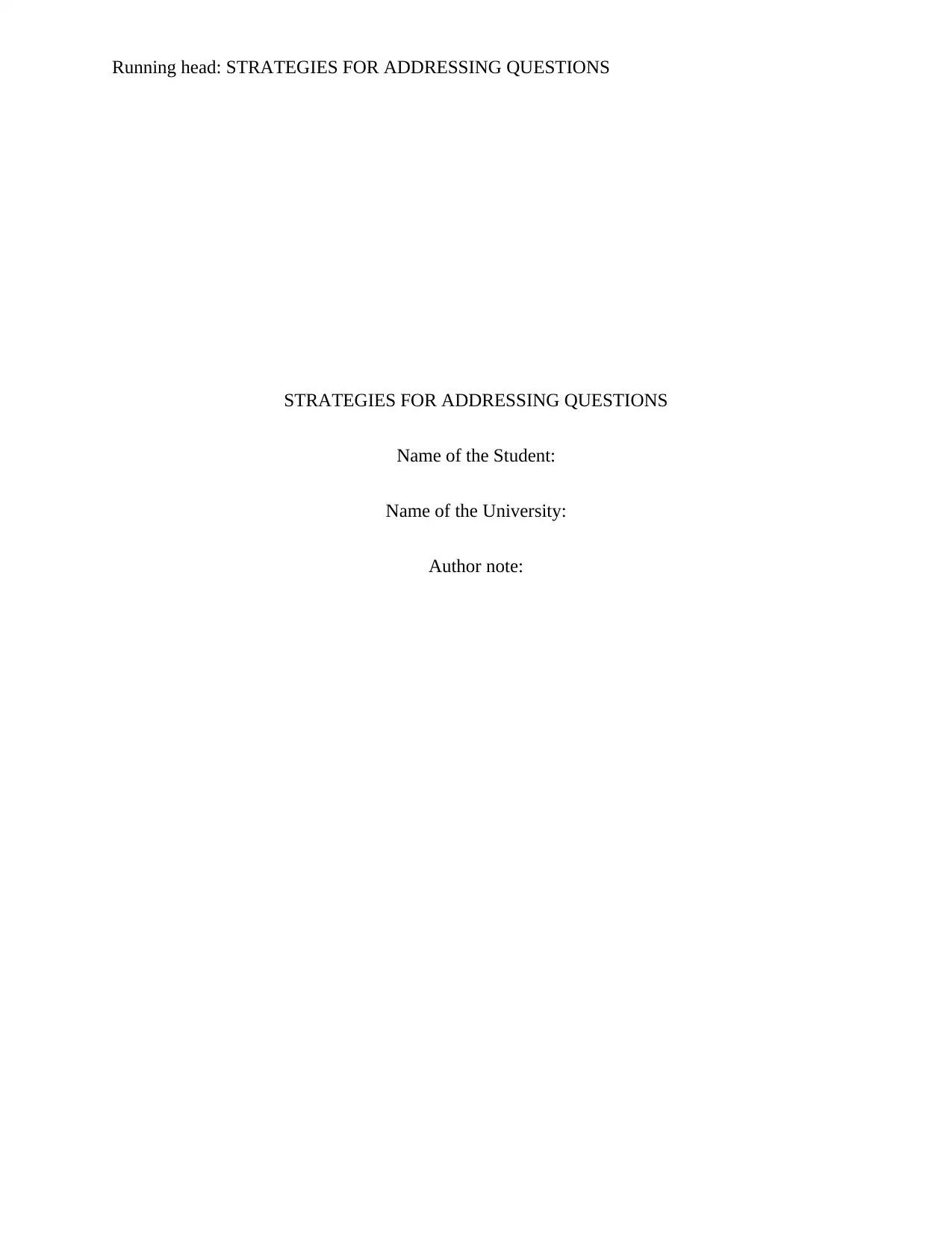
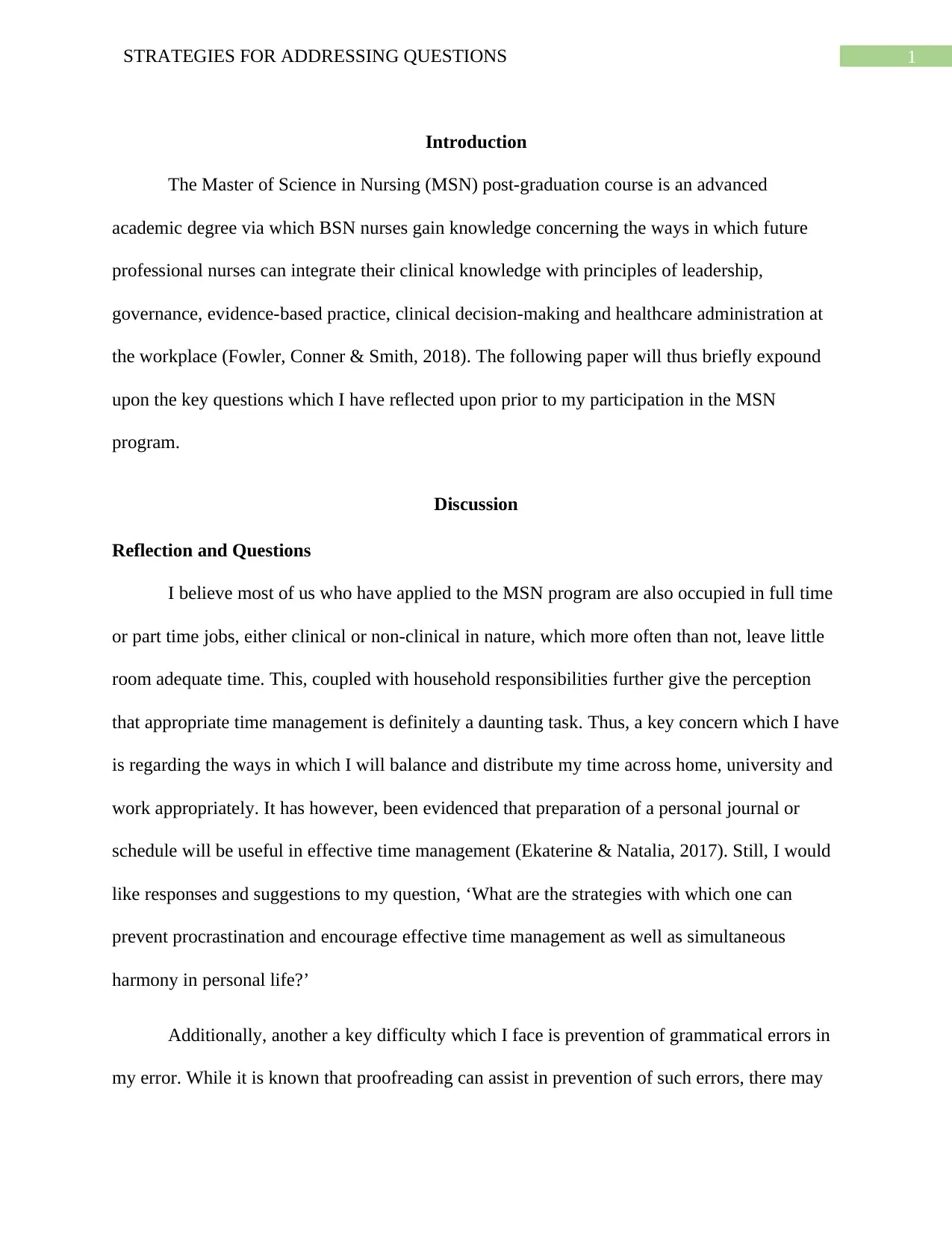
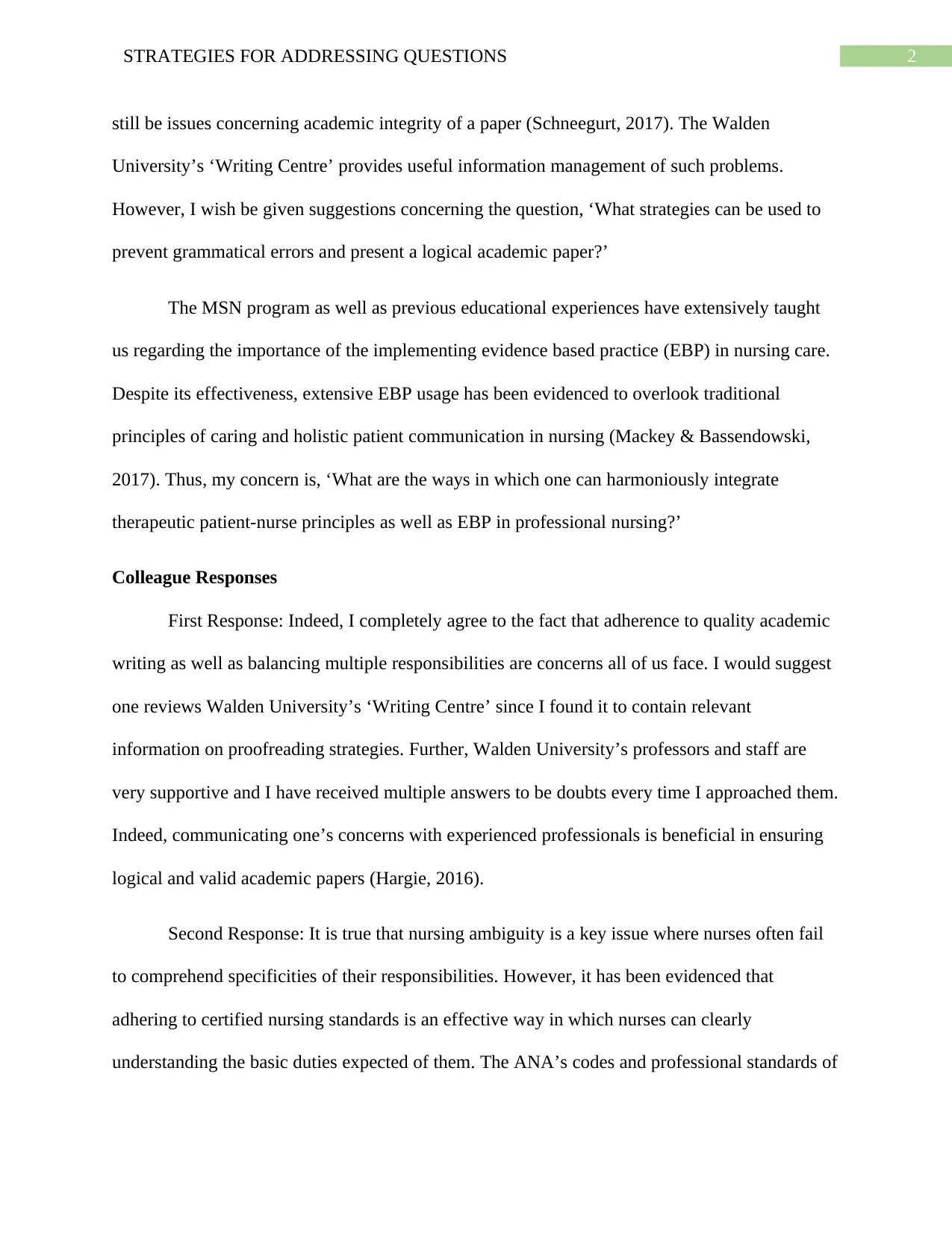

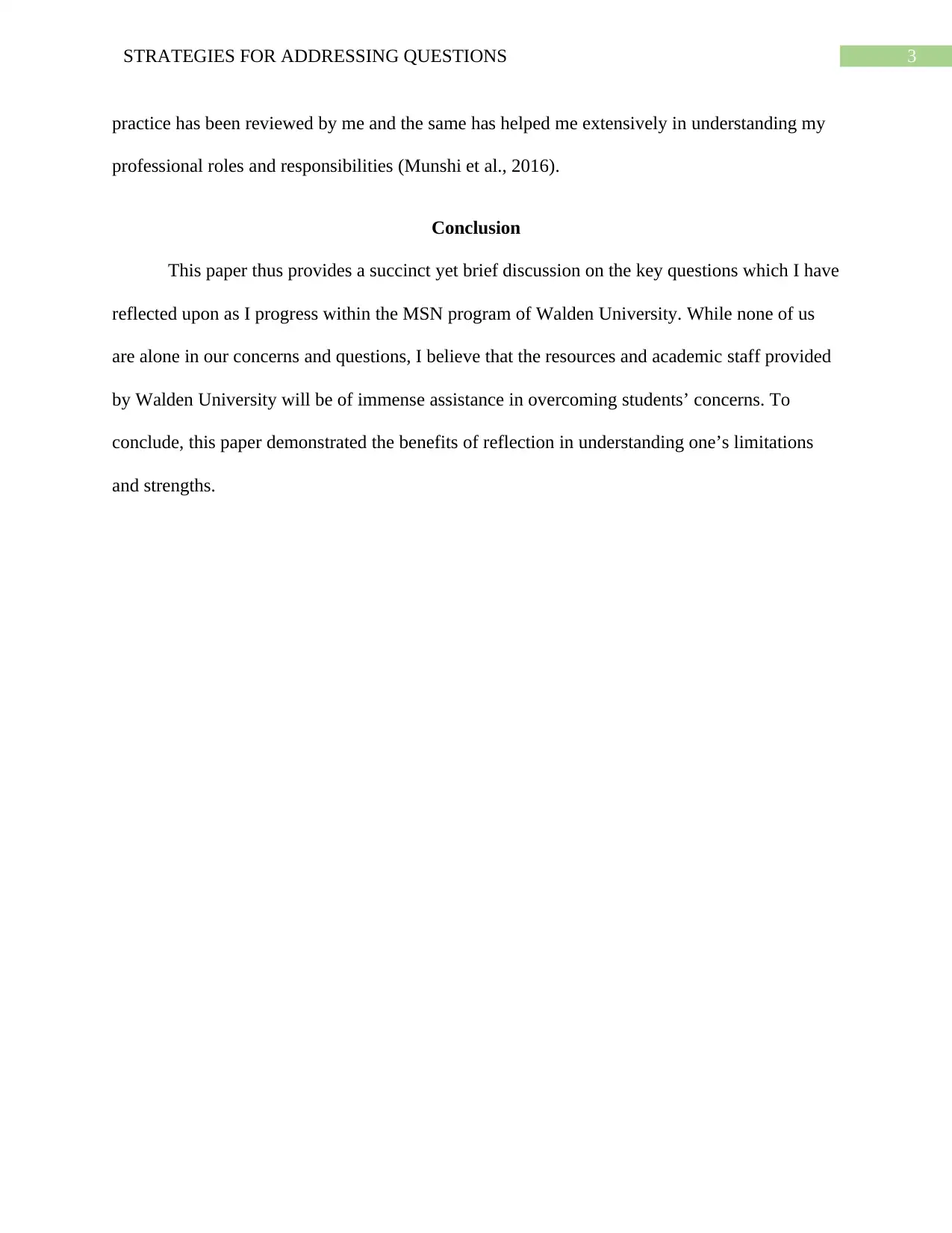
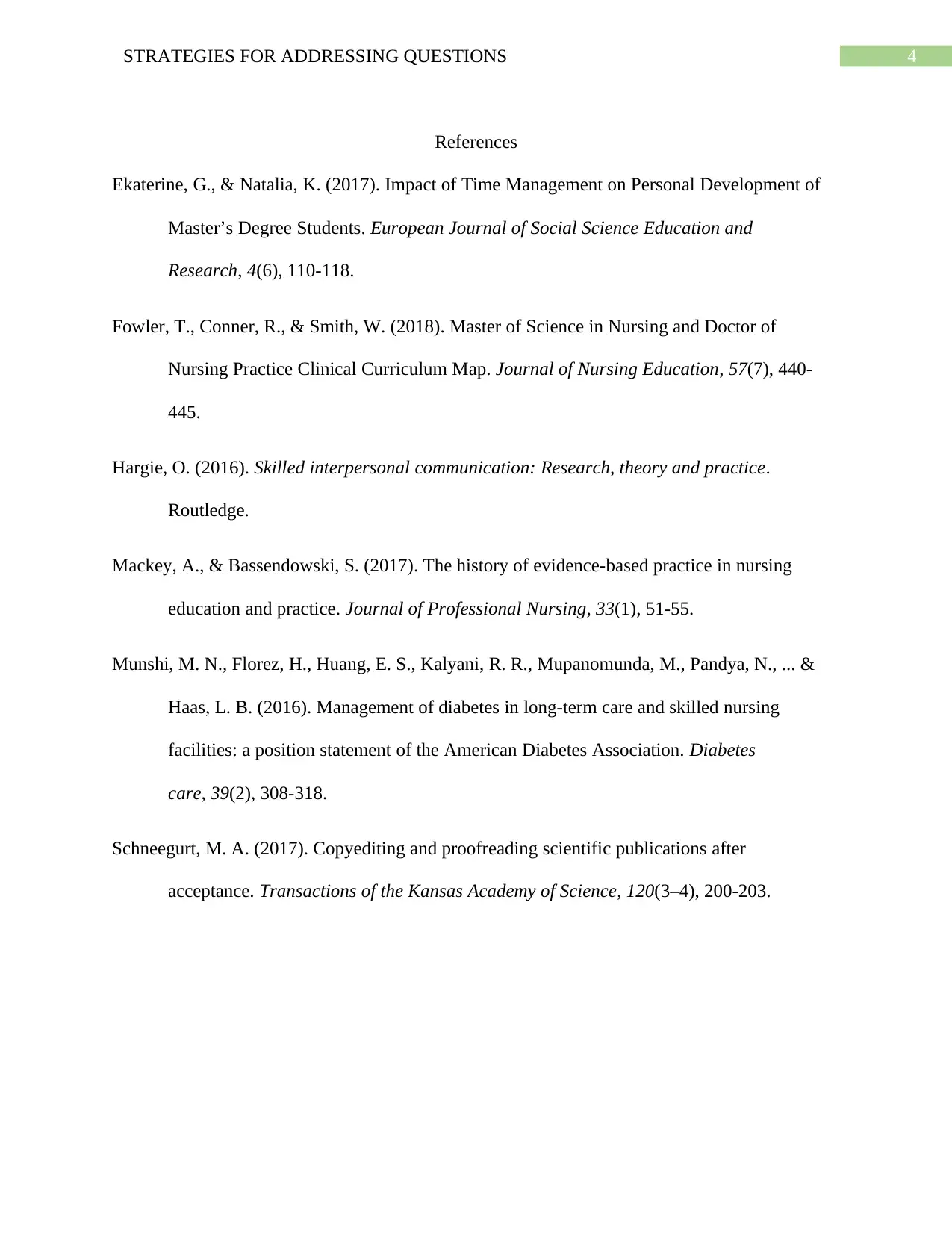






![[object Object]](/_next/static/media/star-bottom.7253800d.svg)